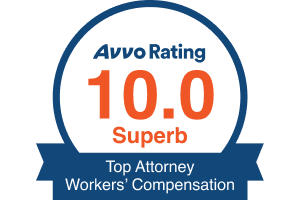Enforced Isolation
Nursing Home Abuse Lawyer Helping Spartanburg and Greenville Residents
Our elder population is growing at an increasing rate. This means that a substantial number of people will spend at least some portion of their lifetime in a nursing home or another care-giving facility. Although these operations ensure that the elderly have a place where they can seek the care and support that they require during this phase of their lives, nursing homes are rife with abuse and inadequate treatment. Not knowing whether your loved one is safe is stressful, but finding out that they have been a victim of inappropriate treatment is devastating. One common occurrence that may have catastrophic results for a victim is enforced isolation, in which the resident is prohibited from coming into contact with other residents or visitors. Greenville and Spartanburg nursing home abuse attorney Patrick E. Knie is here to help you seek the justice that your family and you deserve.
Recognizing Enforced Isolation in Nursing Homes
When a resident is placed in a nursing home, they may already be suffering from feelings of abandonment and isolation, especially if their relatives live far away or are unable to visit frequently. When the facility, through either intentional cruelty or neglect, confines a nursing home resident and invokes a pattern of isolation, the outcome may be devastating. Some nursing home residents are subjected to a lack of contact with other residents and their peers, resulting in negative self-esteem, emotional pain and stress, fear, anxiety, and other harm. In many cases, the enforced isolation is part of a larger pattern of abuse in which the nursing home staff are engaging in other abusive acts. To keep the resident from reporting them or alerting other individuals, the staff members involved may try to keep the resident isolated.
Holding a Nursing Home Facility Accountable for Abuse
Nursing home facilities have a duty to provide appropriate care, support, and maintenance to residents at all times. This includes providing adequate medical care or seeking prompt medical attention if the nursing home staff knew or should have known that the resident was suffering from a medical condition that required assistance. If the nursing home fails to provide adequate care, such as rendering therapies and medications at an appropriate schedule, responding to reasonable requests and complaints from the residents, and abiding by the many regulations that apply to these facilities, the nursing home may be sued for negligence. If the plaintiff’s attorney is successful in proving that the nursing home was negligent, the plaintiff may recover several different types of compensation, including medical expenses incurred as a result of the injury and pain and suffering.
In instances in which the nursing home staff acted intentionally and maliciously, the plaintiff may seek punitive damages, which are a separate category of damages intended to punish a defendant for particularly egregious conduct and to dissuade others from carrying out the same conduct.
Even if only one staff member has engaged in the abusive conduct, the nursing home may be held liable due to a legal doctrine called vicarious liability. Under this rule, an employer is liable for the wrongful acts that its employees commit during the course and scope of employment and in furtherance of the employer’s business. This may be critical to an accident victim’s ability to recover the damages that they need because a facility may be better equipped to pay a judgment than an individual employee.
Contact a Compassionate Attorney in Spartanburg or Greenville
Nursing home abuse is devastating for everyone affected by it, including family members of the victim. At the Knie & Shealy Law Offices, our dedicated team of legal professionals will treat your family and you with the care that you deserve. We represent people in Spartanburg and Greenville, as well as in communities throughout Union, Laurens, and Cherokee Counties. Call us now at (864) 582-5118 or contact us online to set up a free consultation. We also represent people who need a medical malpractice lawyer to hold a health care provider accountable for harming them.







